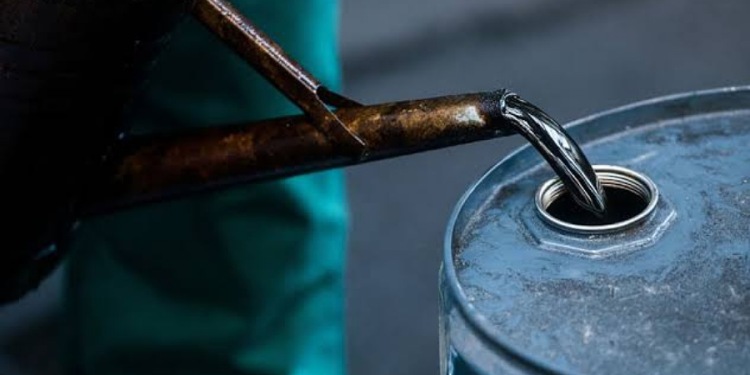Everyone in the Nigerian economy is feeling the heat of the inflationary and ultimately costly economic environment. From spending six hours in fuel queues to having little to no electricity at all, every Nigerian has something to complain about. And by every Nigerian, I mean, everyone in every class. How do I know this? Well, just ask Tony Elumelu, with a net worth of $700 million, who recently went on a Twitter rant, complaining about everything the typical average Nigerian complains about.
He took to his Twitter to state, “This morning, I am listening to my colleagues at the office bemoan the very pressing issues that they face every day in this country, and how things have been getting worse and worse – no electricity for 5 days, hikes in the price of diesel, frightening food inflation, etc.
“How can a country so rich in natural resources have 90% of its citizens living in hardship and poverty? I have often said that access to electricity is critical for our development, alleviation of poverty and hardship. And speaking of security, our people are afraid!”
He did not lie when he said the Nigerian people are afraid. On a daily basis, we are seeing the standard of living and earning power decline at an astronomical rate. The inflation rate currently besieging the country, according to the National Bureau of Statistics (NBS), stands at 15.70%, with the major contributor being the increase in the prices of goods and services.
Earlier this month, we saw fuel scarcity in the nation, with queues, which Opeoluwa Dapo-Thomas, an international analyst, described as “the distance covered in the just concluded Access Bank Marathon in Lagos.” Although one can easily point to the war between Russia and Ukraine as the cause, however, the cause of the fuel scarcity was as a result of the importation of adulterated fuel into Nigeria.
Although the queues are better than what it was 3 weeks ago, there are still concerns that the war could further affect fuel supply, being that Nigeria mostly imports its oil from Europe, which could experience production and supply disruptions as a result of the ongoing war.
With all these issues mentioned, the main point of it all is that the purchasing power of the people is being eroded. According to a Nairametrics report earlier in the month, the price of sachet water, commonly known as ‘pure water’, has doubled across most states in the country, selling at a minimum of N20 per sachet from N10 recorded earlier in the year. Just 5 years ago, this sachet water was going for as low as N5.
Why the focus is on precious metal
Precious metals like Gold have been known to be an alternative investment hedge in periods of inflationary pressure. They have a track record and limited volatility to preserve investors’ wealth during times of high inflation rate.
Matthew DiLallo, a senior energy and materials specialist with The Motley Fool, explained that precious metals have high economic value. He stated, “Precious metals are rare metals that have high economic value. They’re valuable because they’re scarce, useful for industrial processes, or have investment properties that make them a good store of value. Notable precious metals include gold, silver, platinum, and palladium.”
Luigi Wewege, the President at Caye International Bank, explained that Gold has a history of being the perfect asset class to hold in times of inflation. He stated, “Unlike some other types of investments, gold has a strong track record of holding up well during times of inflation. In fact, it may even thrive during such times. Investors who held gold during the inflationary period in the 1970’s saw their gold mining stocks increase significantly in value. That was not an isolated instance; in many places and times, gold is what people turn to when other investments lose value during economic difficulties.”
Now when you compare the current economic situation Nigeria is experiencing, it now begs the question of whether or not it is the right time for us to start investing in precious metals.
What experts are saying
Opeoluwa Dapo-Thomas, an International financial analyst said, “Precious metals look like they are on the minds of institutional investors as US stocks and international major equities are preparing for more inflation and a hawkish Federal Reserve policy.
“Silver, Copper and Gold typically are braced for environments like this but the financial world is very dynamic. Experts would recommend exposing your portfolio by 5%-10% to these metals in case of a touted ‘recession’.
“Nigerians back home can be open to such as the Naira is still weak against the dollar and there are little investment options to hedge against inflation. Silver YTD 7.5% looks decent for investors.”
Olumide Adesina, an analyst at Quantum Economics, pointed out that the bull run seen in the Gold market today is as a result of the inflationary environment seen all over the world. He explained, “Stagflation ignited the yellow metal bull run. At this point, gold is expected to rise. As long as uncertainty prevails and the equity market continues to tumble, I believe gold is trading in the buy zone at present.
“The technical picture for gold remains positive. The fear of war and inflation may act as catalysts for bullion to rise above $2K once again.”
Bottomline
Based on the opinions of the experts, Gold’s long-standing history and experiences in these trying times and the current economic situation of Nigeria, it is safe to say that a way to preserve your wealth is to seek out investments in precious metals.























